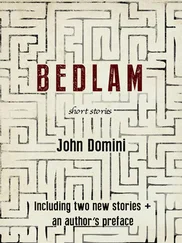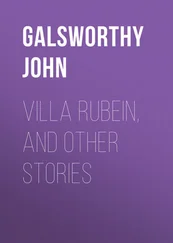John Domini - Highway Trade and Other Stories
Здесь есть возможность читать онлайн «John Domini - Highway Trade and Other Stories» весь текст электронной книги совершенно бесплатно (целиком полную версию без сокращений). В некоторых случаях можно слушать аудио, скачать через торрент в формате fb2 и присутствует краткое содержание. Год выпуска: 2013, Издательство: Dzanc Books, Жанр: Современная проза, на английском языке. Описание произведения, (предисловие) а так же отзывы посетителей доступны на портале библиотеки ЛибКат.
- Название:Highway Trade and Other Stories
- Автор:
- Издательство:Dzanc Books
- Жанр:
- Год:2013
- ISBN:нет данных
- Рейтинг книги:4 / 5. Голосов: 1
-
Избранное:Добавить в избранное
- Отзывы:
-
Ваша оценка:
- 80
- 1
- 2
- 3
- 4
- 5
Highway Trade and Other Stories: краткое содержание, описание и аннотация
Предлагаем к чтению аннотацию, описание, краткое содержание или предисловие (зависит от того, что написал сам автор книги «Highway Trade and Other Stories»). Если вы не нашли необходимую информацию о книге — напишите в комментариях, мы постараемся отыскать её.
Highway Trade and Other Stories — читать онлайн бесплатно полную книгу (весь текст) целиком
Ниже представлен текст книги, разбитый по страницам. Система сохранения места последней прочитанной страницы, позволяет с удобством читать онлайн бесплатно книгу «Highway Trade and Other Stories», без необходимости каждый раз заново искать на чём Вы остановились. Поставьте закладку, и сможете в любой момент перейти на страницу, на которой закончили чтение.
Интервал:
Закладка:
“Teri, tell me. What do you think of my dream?”
“What do I think?” The woman spoke as if there’d been no change in Mary’s tone — exactly as Mary had hoped she would. “I think you don’t want to scratch out somebody else’s eyes, you want to scratch out your own.”
“Ach, yah.” Inksa nodded. “The guilt of the survivor.”
“Guilt and anger, sure.” This was Lavender. “Think of it that way and all the men fit right in.”
Teri kept talking. She said Mary was only human, and there must have been hard moments while her mother was dying. “Aren’t there always? And yet you wanted to be, you know, the perfect, supportive saint of a dutiful daughter.”
“You did your best, Mary,” another woman said. “Last night, you told us, you held her hand.”
But again Mary was shaking her head. “I’ve been all through that. I mean, all the steps. Anger, all the steps.”
“I can see that.” Lavender. “You’ve clearly been empowered, Mary. Empowered in a major way. But everybody breaks down sometimes.”
Mary found herself glaring up at the skylight, the sweet blue heaven behind it. September was too kind, too warm, and someone here was still murmuring nicey-nice.
“I mean it.” She set her knuckles on her hips. “I know all about guilt.”
“Tough girl?” Teri asked. “You’re a tough girl? That chill on your neck, Mary, that’s eternity.”
“I’m not denying that. But, guilt, oh. Listen, after the last couple years of my marriage, when it comes to guilt I’m a connoisseur.”
More chuckling. Two or three of the women relaxed, creaking back into the good brown leather of the mammoth sofa. But Mary caught herself glaring at that, too, and she couldn’t think why. Why the aggravation over Inksa’s taste in furniture? The circle leader wasn’t just chasing a fad, bringing them together here — and she wasn’t cashing in on one either. What Mary and the others were paying couldn’t cover a single month’s mortgage on this place. And Inksa was too much the long-faced watcher, the immigrant not in on the homegirls’ jokes, not to be making a genuine effort.
Then too, she was taking Mary’s side. “Remember the directive of our circle,” she was saying, sweeping an extended finger around the room. “We have joined here in a dream circle . Not to psychoanalyze any one member.”
More women sat back.
“The night images must by their nature remain a mystery in one ,” Inksa said. “It is in the congregation that the unconscious takes on its greatest meaning.”
Her gaze shifted from face to face. But when she got to Mary, Mary had to turn once more towards the window, the heaving surf. Guilt, oh. But not the guilt of the survivor — the guilt of the skeptic.
Hadn’t she had choices, for dealing with Mama’s passing? In the month since the funeral, how many times had her daughter mentioned the Grief Workshop at St. Peter’s Central? Mary had turned instead to the sort of books she’d always sneered at, even to radio call-in programs; she wasted whole Sunday afternoons gabbing into the phone about the end of the century, the looming new millennium. And last night she’d agreed to have her loss serve as the “group focus.” Yet here she stood, still holding these notions at arm’s length, with clenched fists. In fact giving the circle its assignment had wound up working against her. She’d wriggled and shifted in her sleeping bag, feeling alternately anxious and silly, long after the other two women in the room had drifted off.
Maybe Mary was just tired. Maybe all she needed was a walk on the beach.
“It’s interesting that Mary dreamed of travel.” This was a woman with a Brooklyn accent. “That makes three of us, doesn’t it? Doesn’t that make a motif?”
Mary always heard accents like this as the voice of the real world. When she’d first been introduced to the circle, it had made all the difference that one of the women sounded like a neighbor from Bensonhurst.
“It makes four,” Lavender said. “Remember I was in outer space, the Ursula LeGuin planet.”
“Okay, sure. Plus I was in Vietnam where my boyfriend died and Inksa—“ the New Yorker pointed with her head—“was touring those Egyptian ruins.”
“Ach,” Inksa said, “we don’t know they were Egyptian.” But the circle had already begun nodding, gesturing, bringing up other possible connections. Only Mary fell still, unable to escape the heat of the bay window. Blearily she looked over the talkers at her feet, thinking in an accent. Gimme a break. “Motif,” my eye . For women like these to dream of travel was no clue to the universe. Nothing emergent or millennial, nothing nearer to wherever Mary’s mother had gone. It wasn’t a dream at all, travel — it was a daydream. Even Teri’s antique shield of a face stretched into a faint but easy to understand smile. One windfall contract, and Teri too would be on the first plane to Paris.
“To establish a motif,” Inksa was saying now, “generally requires three.”
Three? Mary was thinking. Try all nine of them. There wasn’t a woman in the room, Inksa included, who didn’t eye the bargain fares in the Sunday Travel section. And it had to be Europe. The Old World was key to the daydream, the Sunday dream. The vineyards around Aetna, the ruins of Agrigento — yes, Mary knew what everyone was thinking. Sleepy as she was, she knew. They had in mind a Hollywood Mediterranean: fat-free breads, painless kisses, and singsong cathedral services without smoke, cold, or a cadaver.
“Now what we begin to see is ourselves,” Inksa was saying. “Our wholes emerge as archetypes.”
Archetypes? Mary was thinking. Try stereotypes.
But then recognizing the thought — hearing the accent — she had to include herself in it. Herself and her anger. It was a garden variety women’s anger, a kind Mary knew all too well: another stereotype. And her dream, her damned still-terrifying dream had been just the opposite. She’d dreamed of being different.
Neutral. The feeling’s everywhere: in the crossroads that defines the brown and stony village, in the oboe-easy call of the native horns — horns bodylength and buttress-like, played while standing up. A horn chorus stands at the edge of the meadow (edelweiss blooms low, no presumptuous flower); the players’ lederhosen calls attention to their legs, a reliable musculature right up calf and knee and thigh. Strong, these people. Hikers, forever going up or down the mountainside. Strong, flexible — and neutral, grown-up and neutral, very real world even in the measured echo of the horns. Then why is she scrabbling around so desperately, Maria? What is she searching for?
But don’t the villagers realize — they need it too. What Maria needs to find, it’s vital, it’s as much a part of the local life-flow as all their stolid marching. Just visible at the seams of the local restraint, in the shadows — there, there! Don’t the villagers see them? Elves perhaps. Fairy folk. How’s she supposed to know the species? They’re smaller-scale creatures, that’s all she can say: the sort of faces one sees in a fire. There!
And these faces, wayward and shrunken as lost balloons — somehow their creeping and peeking sustains the clockwork of the rest. Somehow it provides essential backup. Yes, they’re key to the dream, the workday-dream: these bird-bright imps who, at intervals in the clockworks, pop with a raucous squeal out of one neat brown cubbyhole or other. That’s when she’ll sometimes spot one.
But she needs to do better than that. Hard as it is to pick out these small faces in the brown grid of flowers and muscle (the men so handsomely preserved!), Maria has to do better. She has to protect them. For they’re disappearing, these fragile mites; she can feel them fading out, as if her back were to the sun and the sun was going down. How could they not be fading? They’re the little people.
Читать дальшеИнтервал:
Закладка:
Похожие книги на «Highway Trade and Other Stories»
Представляем Вашему вниманию похожие книги на «Highway Trade and Other Stories» списком для выбора. Мы отобрали схожую по названию и смыслу литературу в надежде предоставить читателям больше вариантов отыскать новые, интересные, ещё непрочитанные произведения.
Обсуждение, отзывы о книге «Highway Trade and Other Stories» и просто собственные мнения читателей. Оставьте ваши комментарии, напишите, что Вы думаете о произведении, его смысле или главных героях. Укажите что конкретно понравилось, а что нет, и почему Вы так считаете.











